The first user of a mark for particular goods or services has superior rights against a subsequent user of the same or similar mark for any goods or services that purchasers might reasonably expect to be within the normal expansion of its business.
But can the first user register its mark for goods or services in its zone of natural expansion after an intervening user has used the same or a similar mark for those goods or services?
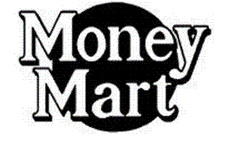
The U.S. Court of Appeals for the Second Circuit (Second Circuit) determined that a Chinese company whose websites offered counterfeit goods to New York residents was subject to personal jurisdiction in New York federal court even though the seller did not deliver those goods to New York purchasers. The seller had confirmed the orders from New York purchasers and had accepted payments for those purchases before being sued for counterfeiting and trademark infringement. After the suit commenced, the seller cancelled the orders and refunded the payments.
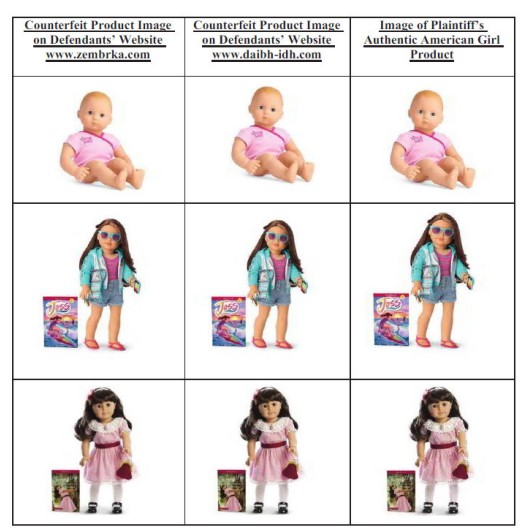
You might think of various reasons why a company owned by a porn star might be prevented from registering her pseudonym GIGI DIOR for services that include “personal appearances by a porn star” and “a web site featuring . . . adult-themed photographs and videos.” You might have reached the right result, but perhaps for the wrong reason.
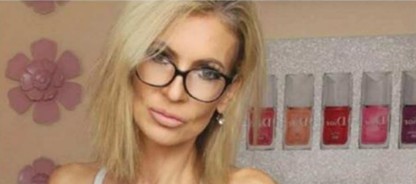
If you select a trademark dominated by a word or number already in use or registered by several others for identical or related goods or services, your inclusion of some other distinctive feature may be sufficient to avoid a finding of likelihood of confusion for registration purposes.
To be registrable, a trademark must identify and distinguish an applicant’s goods from those of others and indicate the source of those goods.
When an Examining Attorney or an opposer challenges a phrase on the ground that it fails to function as a trademark, the burden is on the challenger to prove the phrase is merely informational or is a common phrase (ordinarily used in the industry). We previously covered this in “Refuting a ‘Failure to Function’ Refusal to Register a Trademark” concerning a case in which the Trademark Trial and Appeal Board (TTAB) reversed an Examiner’s failure-to-function refusal to register MAKE YOUR PASSION YOUR PAYCHECK for clothing.
The Pennsylvania State University v. Vintage Brand, LLC, No. 4:21-cv-01091 (M.D. Penn. Nov. 19, 2024) is an important case.
This case concerns whether or not a trademark owner’s rights are infringed when its trademarks are used without authorization on merchandise for consumers to express their allegiance to the institution or brand. This issue is significant for academic institutions, sports teams, motion picture studios, and others who offer services and who also sell or license merchandise displaying their trademarks.
This article is about a 2024 decision by the U.S. Court of Appeals for the First Circuit arising out of the “trial of the century” in 1892 in which a jury acquitted Lizzie Borden of all charges that she had murdered her father and stepmother. This sparked the rhyme,
Lizzie Borden took an axe
And gave her mother forty wacks
And when she saw what she had done
She gave her father forty-one.
A bed and breakfast named “Lizzie Borden House” is operated in Fall River, Massachusetts by US Ghost Adventures, LLC. Ghost Adventures also provides ghost tours, and it owns incontestable federal service mark registrations for “restaurant and hotel services” of the name LIZZIE BORDEN and of a notched hatchet blade design.
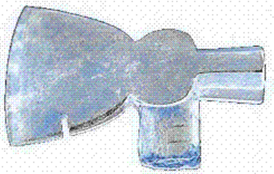

Ho Ho Ho! ‘Tis the season to be jolly. However, the U.S. Patent and Trademark Office and the Trademark Trial and Appeal Board (TTAB) did not seem to share this message fully.
The U.S. District Court for the Central District of California (Court) reversed a decision by the Trademark Trial and Appeal Board (TTAB), which had affirmed a ruling by the U.S. Patent and Trademark Office (PTO). Unlike the lower tribunals, the Court held that SPECTACLES is not generic for “smart glasses,” although the Court held that this term is “highly descriptive” of these goods.
In a detailed 60-page opinion, the Court explained the differences between generic names and descriptive trademarks. The Court concluded that the evidence in this case, particularly the traditional Teflon survey evidence, failed to support the genericism determinations reached by the TTAB and the PTO.
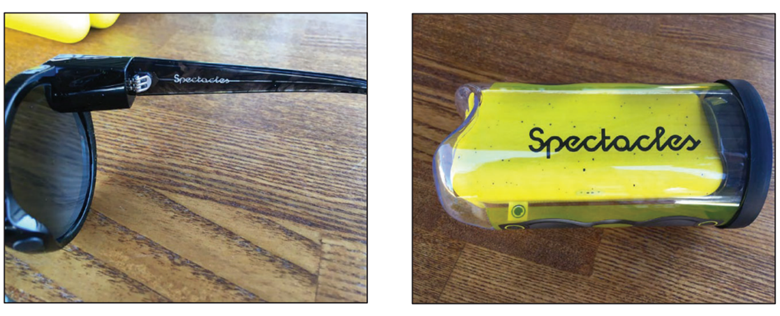
At one time, retail store activities were not considered “services” when the store sold only its own goods. Today, however, the name of a retail store, whether brick-and-mortar or online, may be considered a service mark despite its sale of only its own goods.


 RSS Feed
RSS Feed